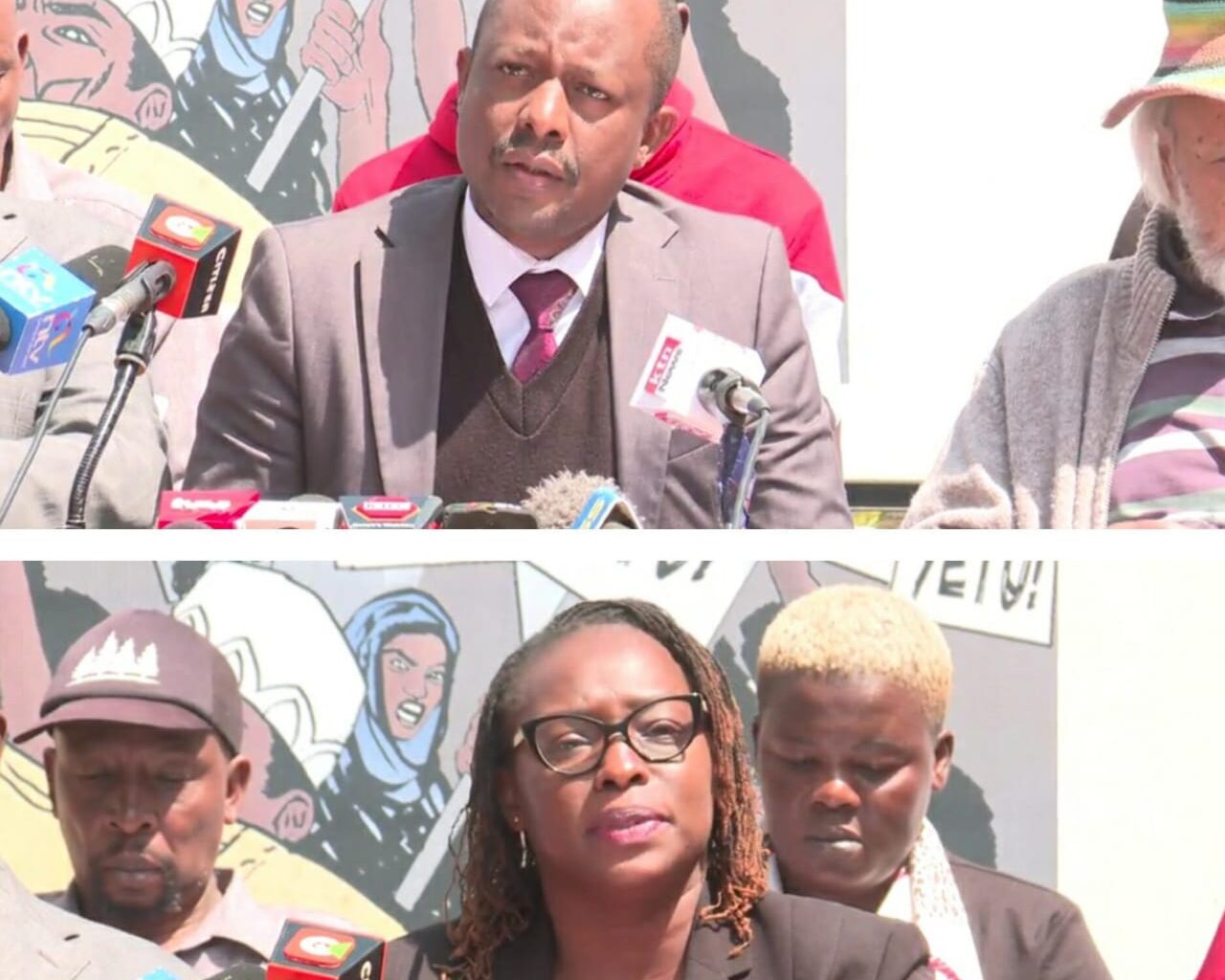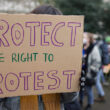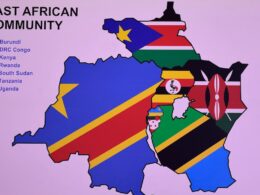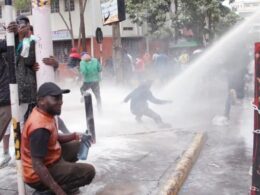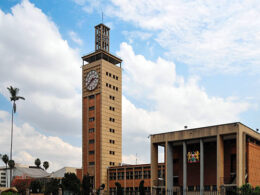Joint statement by the human rights community in Kenya on the state of the nation following protests on the 2024 Finance Bill
1. We issue this statement as a collective of human rights actors, eminent jurists, victims’ and survivors’ representatives, and others who support the promotion of human rights, the rule of law, and constitutionalism in Kenya.
2. We issue this statement in the lead-up to the commemoration of Saba Saba – a movement that was birthed in the 1990s to protest over Government corruption and repression and agitate for democratic rule in Kenya. It is unacceptable that 34 years later, we continue to witness the tactics used by President Moi’s regime, through its security agents, to suppress dissent. Such tactics included arbitrary arrests and detentions abductions, enforced disappearances, torture, surveillance and intimidation, and even hiring of goons to infiltrate protests. In striking similarity to the current protests in which 41 deaths have so far been reported, at least 20 people were killed amidst confrontation by police officers against protestors during the Saba Saba demonstrations in July 1990.
3. The most significant point of departure has been the promulgation of the 2010 Constitution. It articulates the values and principles of governance and provides a robust Bill of Rights for the protection of human rights and fundamental freedoms of every Kenyan citizen.
4. However, today, we face the persisting challenge of constitutional rhetoric without constitutionalism. In our assessment, the economic crisis that triggered the protests over the 2024 Finance Bill and resulting violations are rooted in a systematic disregard for the 2010 Constitution, which is manifested in the improper use of taxes collected, unchecked debt, corruption and failure to conduct meaningful public participation, leading to increasing taxation and high cost of living.
5. The protests have laid bare the variance between the Government’s hollow declarations on commitment to uphold the Constitution, and its conduct and actions that continue to undermine and violate human rights and the rule of law. This situation is compounded by an entrenched culture of impunity, where blatant constitutional and human rights violations are rarely met with accountability or meaningful remedies for affected victims. Furthermore, independent constitutional commissions intended to provide oversight towards ensuring the State’s compliance with established constitutional principles have been significantly weakened through executive interference and inadequate resource allocation.
Cessation of violations and accountability
6. Throughout the protests, the Government has repeatedly stated its recognition of and commitment to uphold the right of every citizen to “peaceably and unarmed” assemble, demonstrate, picket and present petitions to public authorities as provided in Article 37 of the Constitution. In this regard, the Government is obligated to take all necessary measures to prevent State actors, including security officers and private individuals, from interfering with citizens’ enjoyment of their right to protest. This necessitates the protection of other rights that are essential for the fulfilment of the right to protest, including freedoms of conscience, religion, belief and opinion, expression, association, media, and access to information.
Further, the state is required to ensure credible investigations and prosecution of both state and non-state actors who violate the right to protest and related rights and provide effective remedies to affected victims.
7. In violation of constitutional obligations, established human rights norms, the National Police Act and Standing Orders, Public Order Management Act, and a recent ruling of the High Court in Malindi, the Government has continued to deploy state security actors who, rather than offering protection, have been involved in violently suppressing the citizens’ protests. Security forces have continued to systematically use unnecessary and excessive force against unarmed protestors, journalists, medical personnel, and lawyers. This has included live bullets, physical assault, and lethal crowd control weapons such as tear gas, water cannons and rubber bullets. Furthermore, despite the Government’s acknowledgement of intelligence indicating infiltration of the protests by criminal elements, it is unclear whether any specific measures were taken to prevent or counter the infiltration that resulted in wanton and massive destruction and burning of government infrastructure and other properties, looting, and harassment of peaceful protestors. It appears that the Government’s response to the intelligence was to call for withdrawal of the protests altogether.
8. The latest report of the Kenya National Commission on Human Rights, which has been consistently monitoring and documenting the protests and related violations, indicates that the brutal force deployed by security forces has so far resulted in 41 deaths, 361 injuries, and 674 arbitrarily arrested persons. Moreover, the protestors and their supporters have not only been targeted on the streets but also through clandestine abductions, enforced disappearances, incommunicado detention, and, in most cases, subsequent release without being brought before a court of law. KNCHR has reported a total of 34 cases of abductions and enforced disappearances, with two latest incidences being reported on Monday, 1 July 2024.
9. Civil society actors and human rights defenders offering critical support to affected victims and involved in advocacy for accountability have not been spared. There are increasing incidences of security surveillance and threats against these actors, creating a direct affront to the rights of affected individuals and a chilling effect that has the potential to stifle the sector’s effectiveness.
10. We welcome the assurances given by the Independent Policing Oversight Authority (IPOA), Director of Public Prosecutions (ODPP), and Minister for Interior that all individuals, including police officers, involved in unlawful killings and facilitating and financing goons and criminal activities during the protests will be held accountable. In this regard, we wish to emphasise that the Constitution vests the ultimate responsibility for preventing violations of the right to protest and related rights by its own agents and third parties, investigations and prosecution of violators, and provision of effective remedies to victims on the State. Furthermore, in line with the Principle of Superior/Command Responsibility, security officers in command positions should be held liable if they knew or ought to have known that their subordinates were involved in or planned to use unlawful force, lethal weapons and live ammunition to manage protests and failed to take specific measures to prevent, respond or report the violations.
11. Notably, in line with the principle of Superior/Command responsibility, 12 Senior Police Officers are currently facing murder charges under the International Crimes Act of 2008 for the atrocities and serious crimes that happened in Kisumu during 2017 post-election related protests and violence, which led to the bludgeoning and death of 6-month-old Samantha Pendo, “Baby Pendo”, other killings and sexual and gender-based violence classified as crimes against humanity. This should send a strong message to superior officers in the ongoing protests.
12. To this end, we call on the Minister for Interior, Inspector General of Police, Director of Criminal Investigations and Director of the National Intelligence Service to initiate the following immediate measures:
I. Cease all abductions, enforced or involuntary disappearances.
II. Cease surveillance, threats and intimidation of human rights defenders and civil society actors.
III. Provide adequate security measures to counter the infiltration of criminal elements, and facilitate the exercise of the right to peaceful protest by all citizens who may wish to participate in the commemoration of Saba Saba demonstrations on Sunday, 7 July 2024.
IV. Withdraw all lethal crowd control weapons, stop the use of live ammunition, and prioritise non-
violent measures to ensure public order and safety during the protests.
V. Facilitate unconditional release of all individuals arbitrarily arrested and detained for participating in the protests.
VI. Facilitate the presentation of all individuals arrested and detained for unlawful activities to face charges before a court of law within 24 hours as legally required.
We also call on the Independent Policing Oversight Authority and Director of Public Prosecutions to take the following immediate action:
I. Fast-track investigations and initiate prosecutions against individuals liable for the unlawful use of excessive force and lethal weapons leading to deaths, injuries, abductions and enforced disappearances, and other violations and crimes.
II. Taking cognizance of existing laws, Constitutional obligations, and established international human rights and international criminal law norms, ensure that the ensuing investigations and prosecutions are broad enough to encompass liability against superior officers who fail to prevent or respond to violations committed by their subordinates under their watch.
We further call on the Government, with H.E. President William Ruto taking leadership to:
I. Acknowledge the violations suffered by victims during the protests and initiate measures to provide effective remedies to address the physical and psychological harms they have suffered, including issuing a public apology, providing access to free health care, and compensation to address emerging socio-economic needs.
II. As we embark on these measures, it will be worth revisiting the legacy of historical injustices, gross human rights violations that remain unaddressed, and the long-delayed implementation of the Truth Justice and Reconciliation Commission. Many of the survivors of violations resulting from unnecessary and excessive force meted against civilians by state security actors during past protests, election-related and political violence in 2007-08, 2017 and 2022 have been waiting for years for reparation from the State.
III. Ensure prioritisation of adequate resource allocation to enhance the capacities of independent constitutional commissions to provide oversight and relevant checks on Government excesses.
IV. Fast-track the reconstitution of the Independent Electoral and Boundaries Commission.
V. Ensure that a public debt audit is undertaken that includes a public declaration of the uses of the loans acquired.
13. The present crisis presents an opportunity to change course. It is a defining moment to realign the Government’s policies and initiate tangible and coherent measures to ensure that all State organs – Executive, Legislature, and Judiciary – work towards the fulfilment of the 2010 Constitution and are accountable to the citizens of Kenya. We remain at service to the people of Kenya and in solidarity in the fight for accountability, good governance and justice.
Signed
1. Amnesty International Kenya,
2. ARTICLE 19 Eastern Africa
3. Constitution and Reform Education Consortium (CRECO),
4. Defenders Coalition,
5. Democracy Without Borders – Kenya,
6. Federation of Women Lawyers (FIDA- Kenya),
7. HAKI Africa
8. Independent Medical Legal Unit (IMLU),
9. International Centre for Transitional Justice (ICTJ – Kenya),
10. International Justice Mission (IJM-K),
11. Kariobangi Paralegal Network,
12. Katiba Institute,
13. Kenya Human Rights Commission (KHRC),
14. Kenyans for Peace, Truth and Justice (KPTJ)
15. Law Society of Kenya,
16. Missing Voices Coalition,
17. Shield For justice,
18. Social Justice Centres Working Group (SJCW),
19. Social Welfare Development Program (SOWED),
20. The Kenyan Section of the International Commission of Jurists (ICJ Kenya),
21. Transparency International Kenya,
22. Usalama Reforms Forum,
23. Utu Wetu Trust,
24. Wangu Kanja Foundation,
25. Women Empowerment Link
26. Grace Agenda
27. National Victims and Survivors Network





